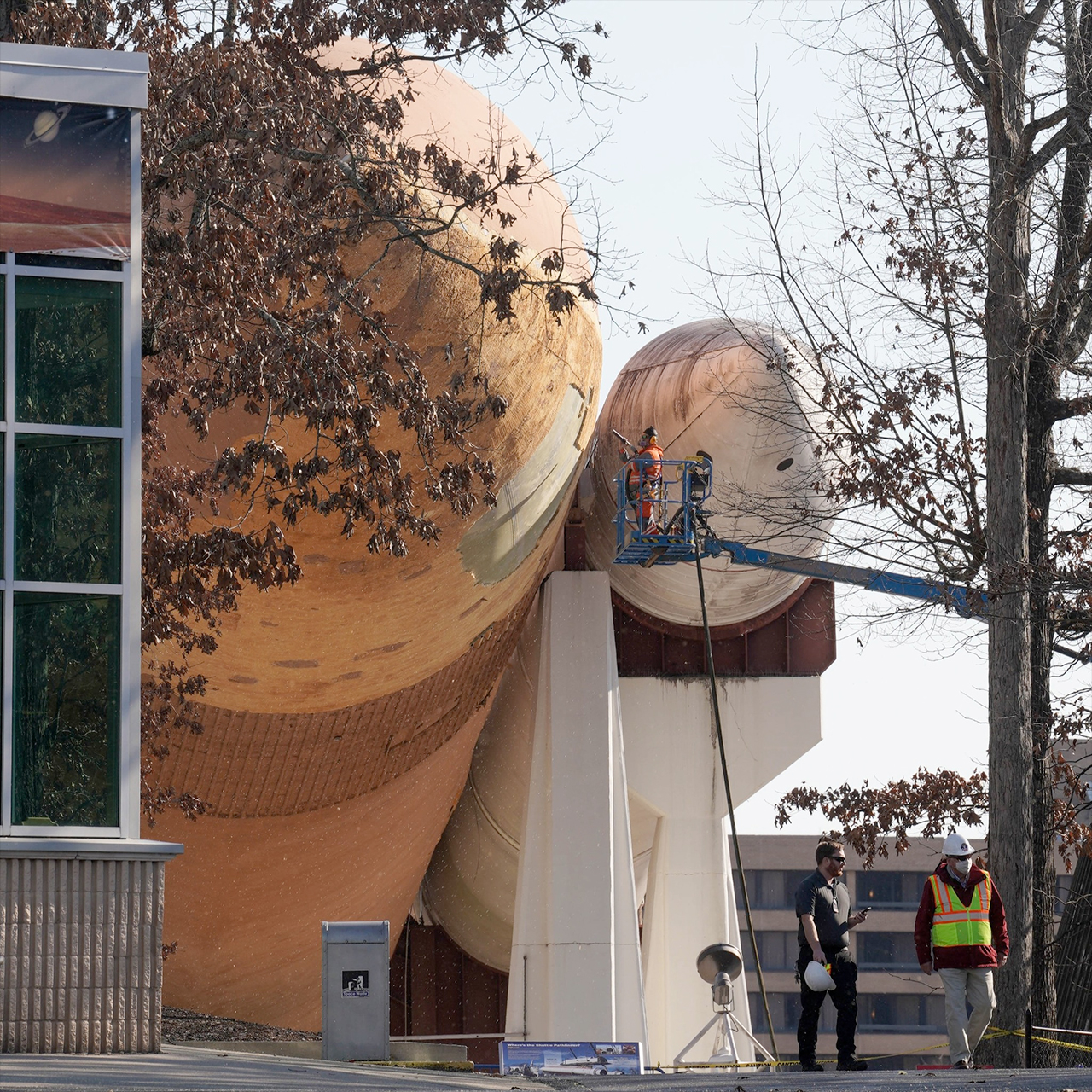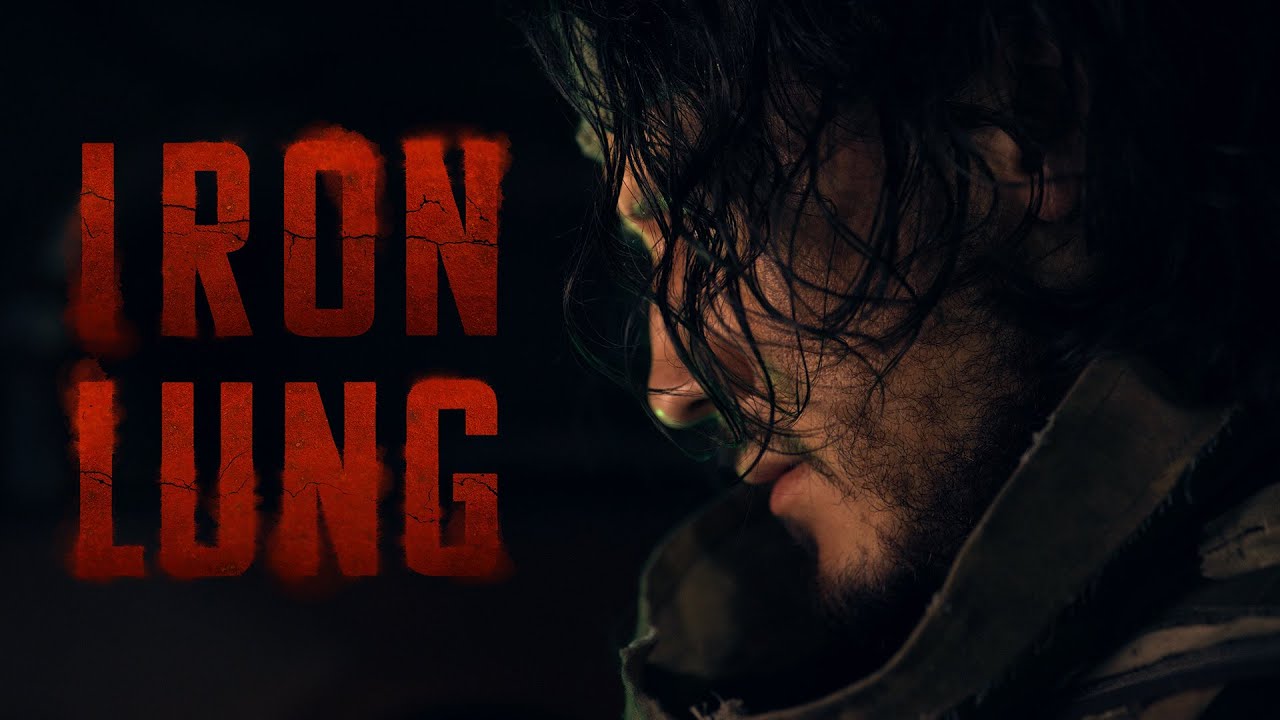Saturn V, space shuttle Pathfinder up for 'adoption' to aid in artifact preservation
You can't take them home, but by adopting artifacts you are helping restore and preserve them for years to come.

Breaking space news, the latest updates on rocket launches, skywatching events and more!
You are now subscribed
Your newsletter sign-up was successful
Want to add more newsletters?

Delivered daily
Daily Newsletter
Breaking space news, the latest updates on rocket launches, skywatching events and more!

Once a month
Watch This Space
Sign up to our monthly entertainment newsletter to keep up with all our coverage of the latest sci-fi and space movies, tv shows, games and books.

Once a week
Night Sky This Week
Discover this week's must-see night sky events, moon phases, and stunning astrophotos. Sign up for our skywatching newsletter and explore the universe with us!

Twice a month
Strange New Words
Space.com's Sci-Fi Reader's Club. Read a sci-fi short story every month and join a virtual community of fellow science fiction fans!
You can now take an aerospace relic under your "wing" and help give it the care it needs for the years to come.
The U.S. Space & Rocket Center Education Foundation has launched an "Adopt an Artifact" program to give the public a chance to "acquire" one or more historic vehicles to aid in their preservation.
"Artifacts at the U.S. Space & Rocket Center play a vital role in our mission as they tell a story through science, engineering, mathematics and technology feats of past generations," the foundation's website reads. "The 'Adopt an Artifact' Program is your opportunity to adopt a piece of history and help us as we honor our past by preserving our historical artifacts of the past and ignite the space stories of the future."
Related: NASA's mighty Saturn V moon rocket: 10 surprising facts
Located near NASA's Marshall Space Flight Center in Huntsville, Alabama, the U.S. Space & Rocket Center was first proposed by rocket pioneer Wernher von Braun as a permanent place to exhibit the hardware of the Apollo moon landing program. The center opened in 1970 and since then nearly 17 million people have passed through its doors. In 1982, it also became the home of Space Camp.
Today, the Space & Rocket Center is a Smithsonian Affiliate and displays hundreds of artifacts, including the Apollo 16 command module "Casper," a Skylab 1G trainer and a Lockheed A-12 "Oxcart" high-altitude reconnaissance aircraft. The center is also the only place in the world to see both a Saturn V moon rocket and Pathfinder, a full-scale mockup of the space shuttle.
The years have taken a toll on these vehicles and they are in need of care. Either preventative actions are needed to defer future deterioration or, in some cases, care is required now to return them to their original condition. The funds raised by the new "Adopt an Artifact" program will not only go to these activities in general, but will be directed to the vehicle(s) of the adopter's choice.
Breaking space news, the latest updates on rocket launches, skywatching events and more!
Among the artifacts up for adoption are the Saturn V, one of only three remaining examples of the rocket that launched the first astronauts to the moon, and Pathfinder, a fit check device for the space shuttle orbiter paired with an external tank and two solid rocket boosters. Also up for adoption is the A-12 Oxcart and an F-14A "Tomcat" fighter jet.
"These national treasures not only teach the public about our past, but also play a large role in the education mission of our space, aviation, robotic and cyber camps," the program's website reads. "Your donation will assist us in our mission of preserving, conserving and restoring these treasures for future generations so they can better understand the history of space exploration that landed America on the moon."
Adoptions begin at $25, which includes a personalized certificate and both a photograph and a history card describing the artifact. For $75, adopters also receive a sticker of their artifact and a three-month trial membership in the center's Space Camp Explorers Club.
Supporters choosing the $150 adoption kit receive all of the items as the first two levels, as well as an entry to win two tickets to the annual Space Camp Hall of Fame induction dinner and their name on an "Adopted by..." label to be placed near the artifact at the Space & Rocket Center.
Artifact adoptions can be made on the foundation's website by either individuals or organizations and may be reserved in honor or in memory of another person.
The U.S. Space & Rocket Center Education Foundation is a 501(c)(3) non-profit organization that raises funds solely for the U.S. Space & Rocket Center and for the museum's family of educational programs, including Space Camp. In addition to the "Adopt An Artifact" program, the foundation also runs the Space Camp Explorers Club, which in return for donations provides behind-the-scenes content, VIP tours and an opportunity to chat with an astronaut.
Follow collectSPACE.com on Facebook and on Twitter at @collectSPACE. Copyright 2022 collectSPACE.com. All rights reserved.

Robert Pearlman is a space historian, journalist and the founder and editor of collectSPACE.com, a daily news publication and community devoted to space history with a particular focus on how and where space exploration intersects with pop culture. Pearlman is also a contributing writer for Space.com and co-author of "Space Stations: The Art, Science, and Reality of Working in Space” published by Smithsonian Books in 2018.
In 2009, he was inducted into the U.S. Space Camp Hall of Fame in Huntsville, Alabama. In 2021, he was honored by the American Astronautical Society with the Ordway Award for Sustained Excellence in Spaceflight History. In 2023, the National Space Club Florida Committee recognized Pearlman with the Kolcum News and Communications Award for excellence in telling the space story along the Space Coast and throughout the world.


